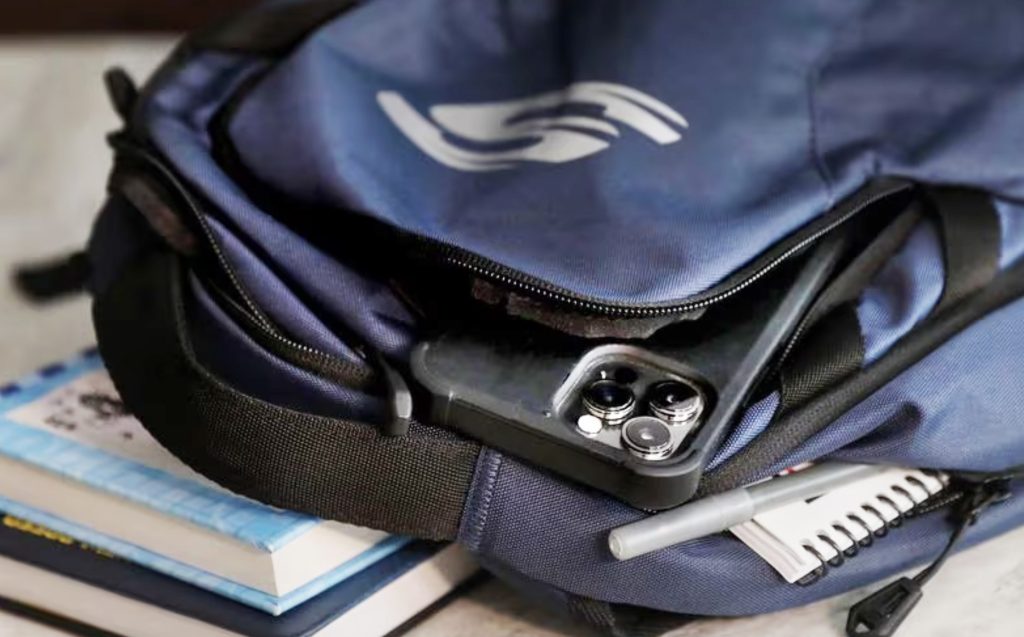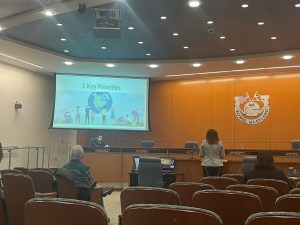As Montgomery Public Schools middle and high school students arrived on their first day of school Thursday, they were asked to lock up their cell phones at the front door.
MPS approved a contract with Yondr – a company that makes cell phone pouches that can only be opened by a magnetic key – during a June Board of Education meeting. Toni Patterson, the district’s director of technology, said students will be asked to place their phones in provided pouches at the beginning of the day. A designated staff member will unlock the bags before dismissal.
“Cell phone use among students in our schools has become a significant issue in recent times,” Patterson said during the June board meeting. “It affects their education, their socialization, and most importantly, their safety. Cell phones create distractions during class, and they can also be used for cheating. On many occasions, they can lead to cyberbullying, sexting and other dangerous activities.”
According to Patterson, 18 middle and high school principals from MPS were interviewed about whether cell phones were a problem in their schools “and 100% of the principals that were interviewed, both magnet and traditional and several other teachers as well, were 100% in favor of the Yondr bags,” she said.
Patterson said the district also spoke with the principal at Stanhope Elmore High School in Elmore County, where Yondr bags were piloted last year. The Stanhope Elmore principal reported that he saw increased student engagement, grade improvement and fewer disciplinary referrals.
In an interview with WSFA, MPS Superintendent Melvin Brown said he hopes to see similar outcomes with the Yondr bags this year.
“We know we want to focus on mental health. We want to focus on social and emotional learning. And we want our kids to be able to focus in class,” said MPS Superintendent Melvin Brown.
According to the National Center for Education Statistics, cellphone bans were in place in 76% of U.S. schools as of 2020. A recent study from Rutgers University-New Brunswick researchers found that when students use cellphones for non-academic purposes, their attention is divided and test scores can suffer.
The Board of Education said it would add a corresponding policy to outline disciplinary measures if a student does not comply with the ban, but that is not yet publicly available.
The district did not respond to a media request to review its contract with Yondr, including details on how much the district is paying the company.











